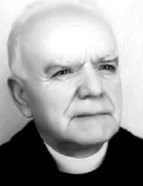

In 1923, he departed for Rome and enrolled at the Gregorian University, where he pursued a degree in Theology, in 1927. On 26 July 1926, he was ordained a priest in the Church of St Ignatius in Rome, with Cardinal Pompili, Vicar General of Pope Pius XI, serving as the ordaining official. In the 1927-28 academic year, he completed his religious studies in Florence.
Wh ich ever city he went, Domingos Maurício searched the archives for documents related to Portugal. Notably, his time in Rome and Florence allowed him to systematically search for documents related to the Portuguese Middle Ages in the Vatican Library, the Vatican Secret Archive, and the Biblioteca Medicea Laurenziana in Florence. While completing his academic training, he also taught, a role he would later pursue as his “professional occupation”. From the outset, it is important to dispel the ambiguity of the term when referring to Domingos Maurício’s primary activity, which was his priestly munus . In the Lent of 1928, he returned to Portugal. His reputation as an exceptional sacred orator was soon firmly established. He returned to Oya, where he stayed for a year to substitute for a professor.
It was not until 1929 that he returned to Portugal permanently. Since then, he served on the editorial board of the journal Brotéria, where he remained until his death. Due to the sequential and comprehensive nature of this collaboration, it has served as a primary source for much of the information contained in this biographical note [referenced as B. and date].
In 1935, he assumed the role of managing Brotéria — a position he would hold, with some interruptions, until 1949 — in order to dedicate himself to historical research. He directed the Brotéria library for over thirty years, a collection specialising in the History of the Society of Jesus and the Age of Discovery, which today holds more than 150,000 volumes. His collaboration with Brotéria totalled around 300 articles, not only on historical topics, but also on theology, apologetics, sociology, social affairs, literary criticism and religious or political current affairs.
This work is financed by national funds through FCT - Foundation for Science and Technology, I.P, in the scope of the projects UIDB/04311/2020 and UIDP/04311/2020.
